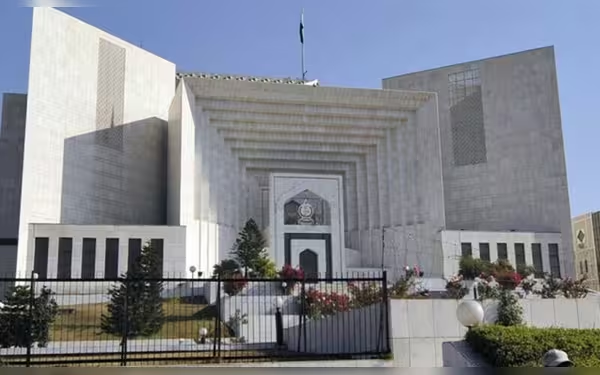Saturday, November 16, 2024 05:29 PM
Supreme Court Rules Proposed Constitutional Amendments Unchallengeable
- Supreme Court declares amendments cannot be challenged.
- Concerns raised over transparency in amendment process.
- Legal experts warn of implications for democracy.
 Image Credits: dawn.com
Image Credits: dawn.comSupreme Court rules that proposed constitutional amendments in Pakistan cannot be challenged, raising concerns over democracy and transparency.
The ongoing debate surrounding the proposed constitutional amendments in Pakistan has taken a significant turn, as the Supreme Court (SC) has ruled that these amendments cannot be challenged in court. This decision has raised eyebrows among legal experts and citizens alike, who are concerned about the implications of such a ruling on the democratic process in the country.
On Thursday, lawyers voiced their apprehensions regarding the government's attempts to amend the Constitution in what they describe as a "secretive" manner. The SC registrar's office recently returned a petition filed by Abid Shahid Zuberi, the former president of the Supreme Court Bar Association (SCBA). Zuberi's petition aimed to prevent the government from presenting the so-called "Constitutional Package" in parliament, highlighting the growing unease among legal professionals about the transparency of the amendment process.
Legal experts argue that constitutional amendments are a critical aspect of a functioning democracy, and any attempt to alter them without proper scrutiny can lead to significant consequences. The SC's ruling has sparked a debate about the balance of power between the judiciary and the legislature, as well as the role of public opinion in shaping constitutional law.
Many citizens are left wondering about the future of their rights and the integrity of the Constitution itself. The notion that proposed amendments cannot be challenged raises questions about accountability and the checks and balances that are essential in a democratic society. It is crucial for the government to engage with the public and legal community to ensure that any changes to the Constitution are made transparently and with the consent of the people.
The situation surrounding the proposed constitutional amendments in Pakistan is a complex and evolving issue. As citizens, it is our responsibility to stay informed and engaged in discussions about our Constitution. The health of our democracy depends on our ability to question, challenge, and hold our leaders accountable. Only through open dialogue and transparency can we ensure that our rights are protected and that the Constitution remains a living document that reflects the will of the people.













